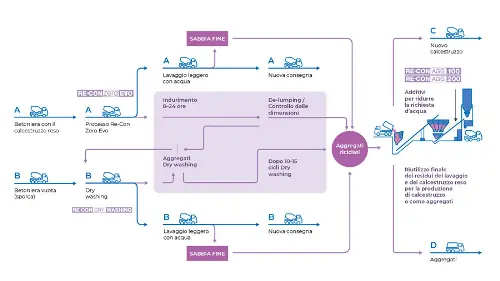

Returned concrete in Northern Europe: we need to move forward
Christian Engelsen, SINTEF: Norway is a cutting-edge country for the environmental impact of using waste materials from production processes and from washing cement mixers
Christian Engelsen, SINTEF: Norway is a cutting-edge country for the environmental impact of using waste materials from production processes and from washing cement mixers
How high is the level of awareness in your geographical area regarding the environmental impact of returned concrete and washing water slurry?
The general view held by the ready-mix concrete industry in Northern European countries is that concrete and concrete washout slurry (water and solids) should not be landfilled but recycled. However, it is difficult for the companies and the professionals working in this industry to fully understand what this means in detail when it comes to the real impact of recycling on the environment. The reason for this is that assessing all the environmental effects is complex. New legislation is coming into effect in Norway, but has yet to be fully implemented. Many ready-mix producers have started to investigate the effects of the new legislation and what changes they will need to make in their waste handling of concrete, slurry and water. More and more often they are asking us at Sintef for advice and are turning to suppliers for solutions and equipment. To summarise, the level of awareness is quite high in the Nordic region and changes are being made to become more sustainable and circular. But some questions still remain unanswered.

In your opinion, what is the most important factor in order to increase the usage of recycled aggregates in new concrete?
SINTEF
The SINTEF foundation is a non-profit research foundation. Its purpose is to contribute to the development of society by carrying out research into natural sciences, technology (including construction and civil engineering), and health and social sciences in collaboration with the Norwegian University of Science and Technology (NTNU). One of Europe's largest research institutes, SINTEF is an independent foundation which, since 1950, has been creating innovation through development and research assignments for business and the public sector at home and abroad.
Find out more about Mapei solutions for the concrete industry at: https://www.mapei.com/cis/en/home-page











